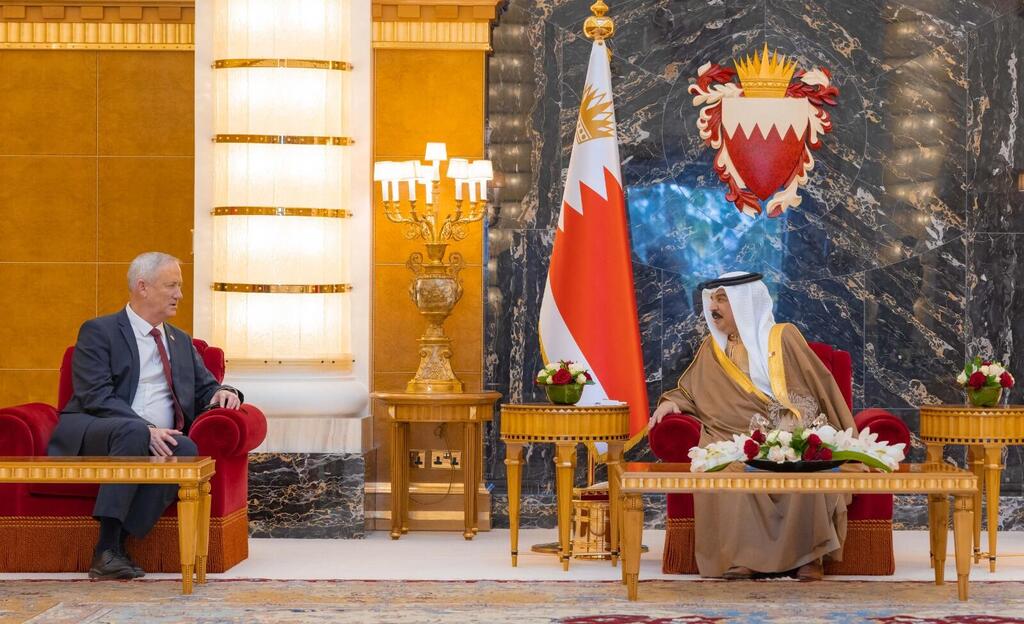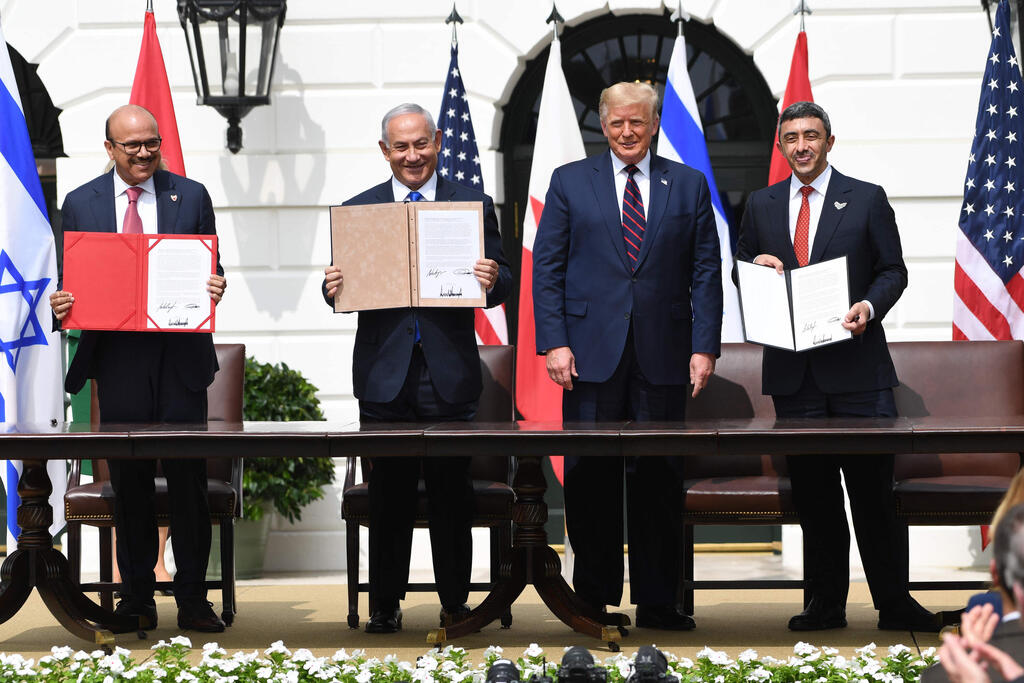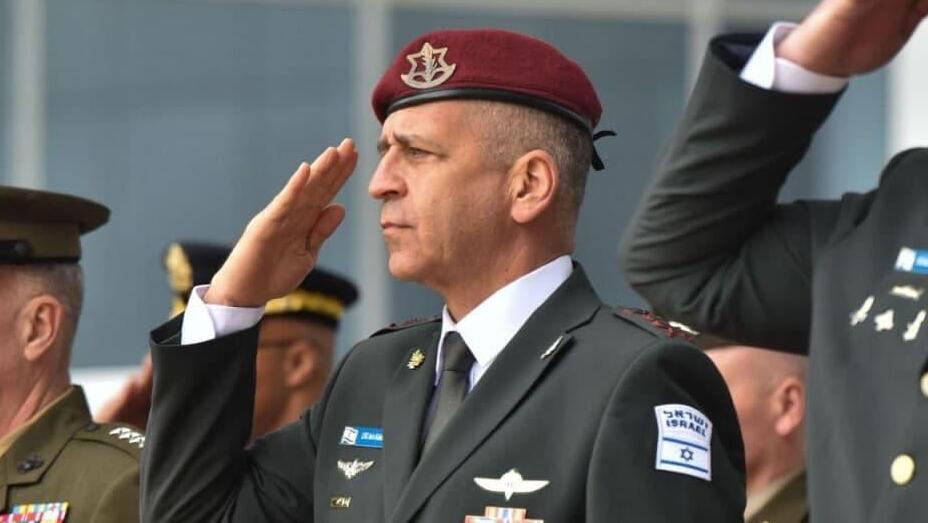Getting your Trinity Audio player ready...
IDF Chief of Staff Aviv Kochavi landed in Bahrain on Wednesday for a series of meetings with top security officials in the Persian Gulf kingdom.
Upon his arrival, Kochavi was greeted by his Bahraini counterpart Lt. Gen. Theyab bin Saqer Al Noaimi. Kochavi also met with the commander of Bahrain's Royal Guard and national security advisor Nasser bin Hamad Al Khalifa, as well as other top brass military personnel.
Israel and Bahrain have been strengthening political and security cooperation against their shared foe Iran, with the former posting a permanent military representative in the Gulf country last month.
Bahrain's foreign ministry said in a statement the appointed IDF officer will work in cooperation with an international coalition comprised of at least 34 countries. It stated that the coalition's goals include securing maritime trade in the region and countering piracy and terrorism.
Kochavi's visit comes after Defense Minister Benny Gantz visited Bahrain last month and signed a security cooperation agreement with the kingdom. Gantz met with the Crown Prince and the Prime Minister of Bahrain Salman bin Hamad Al Khalifa and Defense Minister Abdullah bin Hassan Al Nuaimi.
3 View gallery


Defense Minister Benny Gantz meets with Bahraini King Hamad bin Isa Al Khalifa in Manama last month
(Photo: Elad Malka)
The MOU came 18 months after the Abraham Accords formalized Israel's relations with Bahrain and the UAE and will promote intelligence sharing, joint military drills and closer ties between the defense industries in both nations.
In his meetings with the Bahraini leadership, Kochavi is slated to discuss sensitive security issues including the ongoing Iran nuclear talks in Vienna.
Both countries fear that Tehran would use garnished funds unfrozen by a potential nuclear pact with world powers to further shore up its military presence in Yemen, Iraq, Syria, and Lebanon.
3 View gallery


L-R: Bahraini FM Abdullatif al-Zayani, PM Benjamin Netanyahu, U.S. President Donald Trump and Emirati FM Abdullah bin Zayed Al Nahyan at the White House signing ceremony
(Photo: AFP)
Gulf nations fear that the talks may mark a U.S. capitulation to Iran.
The Wall Street Journal reported Wednesday morning that the White House has failed to arrange a phone call between U.S. President Joe Biden and crown princes of Saudi Arabia and the United Arab Emirates, who refused to speak with him.
Aside from the Iranian issue, the two Gulf states are also disappointed with the Biden administration's decision to remove the terrorist designation of the Iranian-backed Houthi revolutionaries, who have been locked in a bloody war with the two in Yemen.


